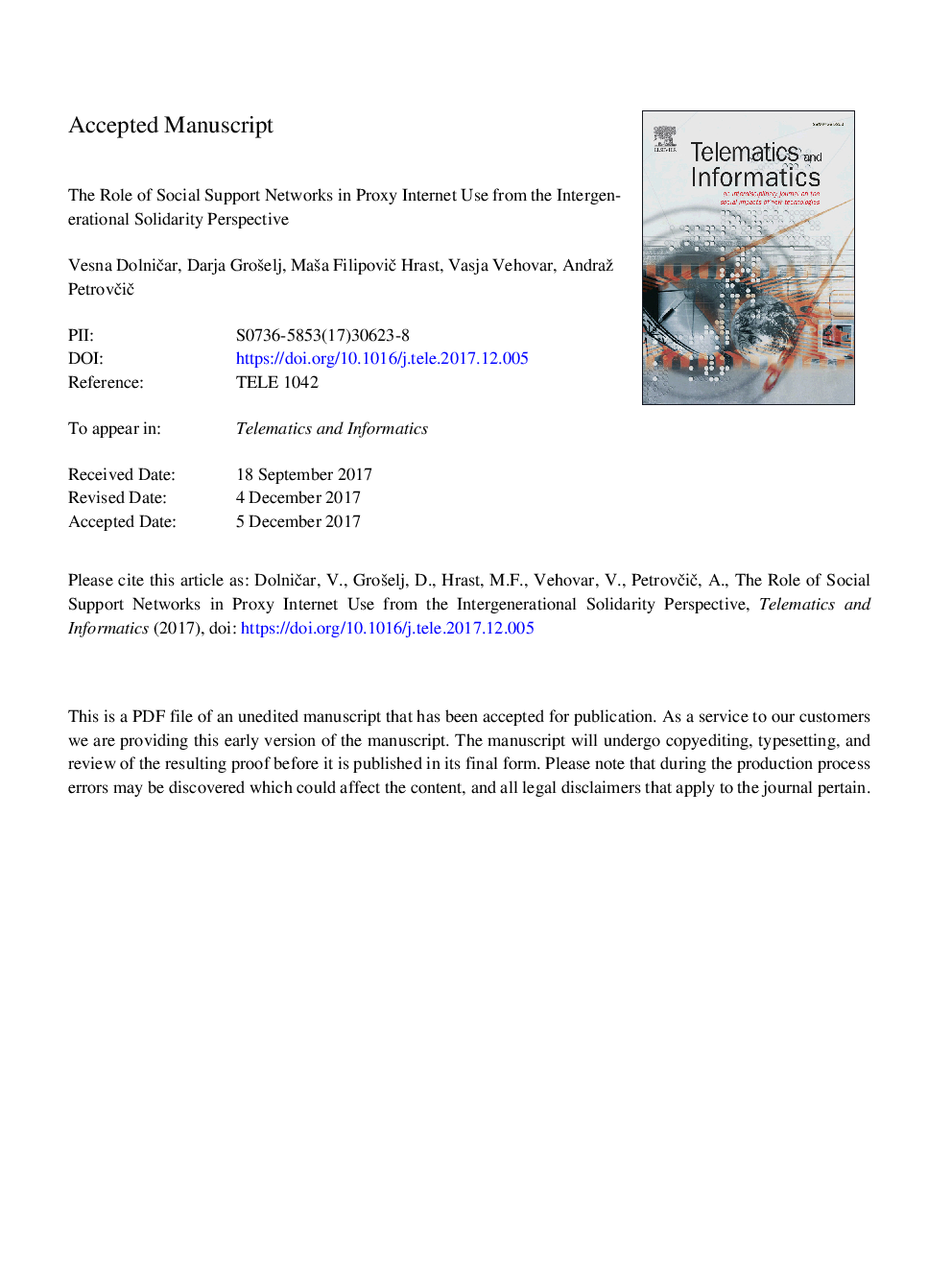ترجمه فارسی عنوان مقاله
نقش شبکه های پشتیبانی اجتماعی در اینترنت پروکسی از دیدگاه همبستگی بین نسلی استفاده می شود
عنوان انگلیسی
The role of social support networks in proxy Internet use from the intergenerational solidarity perspective
| کد مقاله | سال انتشار | تعداد صفحات مقاله انگلیسی |
|---|---|---|
| 127943 | 2018 | 50 صفحه PDF |
منبع

Publisher : Elsevier - Science Direct (الزویر - ساینس دایرکت)
Journal : Telematics and Informatics, Volume 35, Issue 2, May 2018, Pages 305-317
ترجمه کلمات کلیدی
نابرابری دیجیتال، حمایت عاطفی، همبستگی بین نسلی، استفاده از پروکسی اینترنت، حمایت اجتماعی شبکه های پشتیبانی اجتماعی،
کلمات کلیدی انگلیسی
Digital inequality; Emotional support; Intergenerational solidarity; Proxy Internet use; Socializing support; Social support networks;

